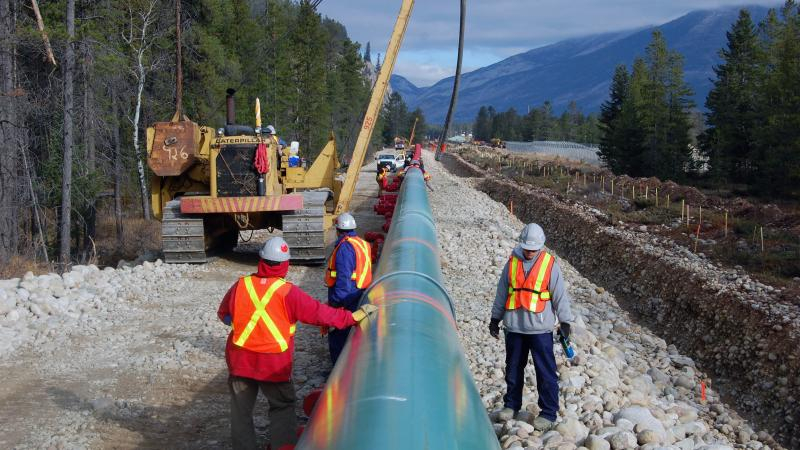
Today, four out of five Canadians who have died from COVID-19 in Canada are linked to long-term care homes. The first death from COVID-19 in Canada was an elderly resident of the Lynn Valley Care Centre in British Columbia. It marked the first of dozens of outbreaks in long-term care homes in Canada that have taken thousands of Canadian lives.
The stories from long-term care homes are horrific, particularly in Ontario and Quebec where the situation has deteriorated so rapidly they’ve needed to bring the military in to help provide care for elders. Residents being left alone and uncared for, for hours – or even days – at a time due to inadequate staffing. Chilling allegations of long term care homes hiding dead bodies. Healthy residents living in the same rooms with COVID-19 patients. Nurses and care aide staff denied basic personal protective equipment, forced to work in unsafe conditions. These stories defy common sense and basic human decency. They are both terrifying and enraging.
Compounding this nightmare is how slow many governments have been to respond, how allergic they are to taking accountability for this travesty. Quebec Premier Francois Legault took “full responsibility” only after the province saw 688 COVID-19 deaths, more than half of them in long-term care homes. Ontario Premier Doug Ford denied knowing that former premier, Mike Harris, the architect of health care privatization in that province, was the board chair of the biggest chain of private care homes in Ontario, the sites of numerous, tragic, deaths. Healthcare workers in Ontario had to go to court to get proper safety measures put in place at three long-term care homes, exposing lack of proper government oversight.
BC has taken a different approach, moving swiftly and decisively to step in and make major changes in long-term care to address the fundamental flaws in the system. While there are still ongoing outbreaks in BC, and much more work to do, this week, BC’s Public Health Officer, Dr. Bonnie Henry, announced that the outbreak at Lynn Valley Care Centre was finally resolved.
This tragedy was years in the making.
The dramatic loss of life in long-term care in Canada in the pandemic is a damning indictment of care home privatization, and woefully inadequate employment, health and safety standards — the legacy of right-wing governments.
What makes this tragedy even harder to accept is that so many of these deaths were preventable.
The shocking truth is that the problems at the root of the widespread infection and loss of life in care homes across Canada were well known to governments and experts, years before COVID-19 ever reached our shores.
Health experts agree that the most significant factor in the spread of COVID-19 between care homes has been the precarious nature of work in the sector, a situation that led to many care workers working in more than one care home, just to make a living. Over 90% of all personal support workers in care homes are women, many of whom are also racialized and/or immigrants. Most long-term care workers endure poor pay, part-time contracts and job insecurity, making recruitment and retention in the sector even more difficult.
In British Columbia, the sorry state of the long-term care sector can be traced back to 2002, when the BC Liberal government accelerated the transition of publicly funded long-term care to the for-profit sector by cutting capital spending on senior care and breaking up contracts of unionized health care workers. This resulted in increased privatization, contracting out, and the removal of worker protections, which left healthcare workers with fewer rights than other workers in the province. Mike Harris’s government in Ontario in the 90s tells a similar story about privatization and the long-term care sector, as have other conservative governments across the country.
In February 2020, just weeks before the World Health Organization declared a COVID-19 pandemic, BC Seniors Advocate Isobel Mackenzie issued a scathing report on the long-term care sector in BC. She found that the $1.4 billion for-profit long-term care sector – which receives $1.3 billion per year from BC taxpayers – spends $10,000 less per month per resident than its non-profit long-term housing counterparts.
Low wages and poor standards may “cut costs”, but the bigger cost is the risk to elders that has resulted.
There are solutions we can implement now
Prior to the COVID-19 outbreak, in 2019 and early 2020, the current BC government had already taken over operations at four privately-run long-term care homes due to senior neglect and inadequate care. After the outbreak at the Lynn Valley care home, BC moved quickly to immediately implement some much needed changes, including:
-
-
- Centralizing the allocation of long-term care staff to homes so that staffing is sufficient to safely meet patient care needs;
- Ensure that workers work at only one facility, to prevent the spread of COVID-19 and other communicable diseases between homes;
- Treat (and pay) care home workers as full-time workers, with living wages; and,
- Increased job protections.
BC has led the country in responding to the crisis in long-term care, and minimizing the loss of life, but as BC Premier John Horgan and Health Minister Adrian Dix have both acknowledged, there is much more to do.
It took a coronavirus pandemic for Canadians to see the depth of the flaws in long-term care. The time for talk, more reviews and studies on the problem passed 20 years ago. It’s now time for urgent action to prevent anything like this from ever happening to seniors again.
In the short term – during the COVID-19 pandemic and until a vaccine is found – every province and territory needs to follow BC’s lead in patching up some of the gaping holes in our long-term care system.
In the long-term, we will need better health and safety controls, adequate personal protective equipment (PPE) and regulatory measures in place to protect both long-term care workers, and the residents they serve. We also need national minimum standards when it comes to long-term care, so that we can be confident that our loved ones will be well cared for, no matter where they live in Canada.
And perhaps most importantly, all Canadians need to call for an end to privatized, for-profit long-term care, so we can put people – not profit – at the centre of our elder care system. It’s time for this to happen. There’s too much at stake. As we’ve learned the hard way it’s literally a matter of life and death. SOURCE














